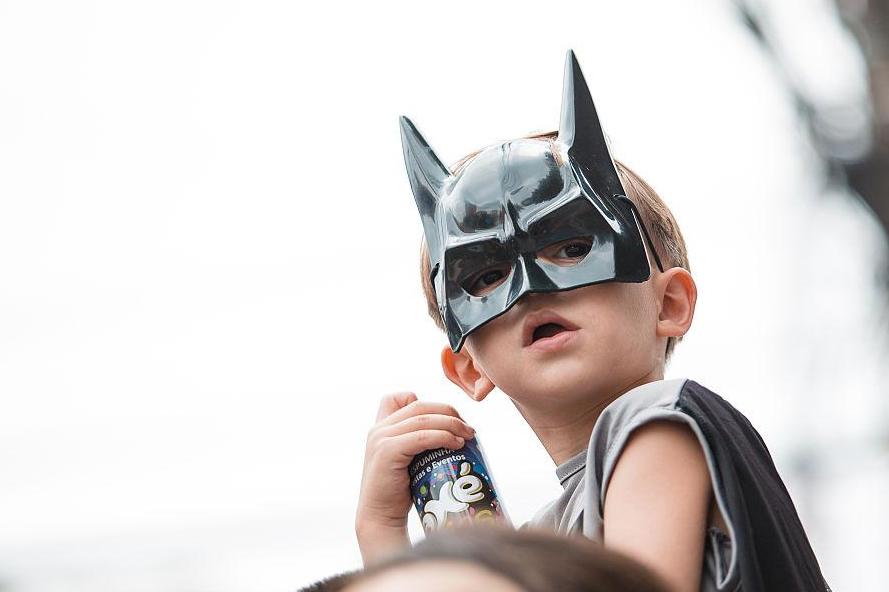Batman Effect: Playing make believe could help boost your child's productivity, finds study
Want your little one to work harder at school? This could be the answer

Your support helps us to tell the story
From reproductive rights to climate change to Big Tech, The Independent is on the ground when the story is developing. Whether it's investigating the financials of Elon Musk's pro-Trump PAC or producing our latest documentary, 'The A Word', which shines a light on the American women fighting for reproductive rights, we know how important it is to parse out the facts from the messaging.
At such a critical moment in US history, we need reporters on the ground. Your donation allows us to keep sending journalists to speak to both sides of the story.
The Independent is trusted by Americans across the entire political spectrum. And unlike many other quality news outlets, we choose not to lock Americans out of our reporting and analysis with paywalls. We believe quality journalism should be available to everyone, paid for by those who can afford it.
Your support makes all the difference.Dressing up as a fictional character could make children work harder, new research suggests.
Getting your little ones to focus can prove to be one of the most challenging trials of parenthood, but according to a recent study, the solution to a distracted child lies in the bottom of their dressing up box.
Published in the journal Child Development, researchers have found that youngsters who were able to engage in pretend play while performing a mundane task exhibited greater perseverance.
Dubbed the ‘Batman Effect’, the results suggest that far from being a distraction, role-play could improve your child’s focus.
Researchers placed 180 children between the ages of four and six into three different groups, including one where they were allowed to dress up as Batman, Rapunzel, Dora the Explorer and Bob the Builder.
Each group was then given 10 minutes to complete a boring task on a computer, but were also told that they could play a fun game in nearby room whenever they wanted to.
While the former were told to think of themselves as the character they had dressed up as when completing the task, other children were asked to act like themselves, sans costume.
Interestingly, the results found that the children who dressed up actually got the most work done.
In fact, 55 per cent of 6-year-olds who engaged in pretend play spent the most time on the boring task, as did 32 per cent of 4-year-olds.
This is compared to just 35 per cent of 6-year-olds, and 20 per cent of 4-year-olds who did not dress up.
As such, researchers believe that through a combination of distraction and mirroring aspirational qualities, allowing children to assume other identities could make them more persistent.
“Perseverance is necessary throughout our lives, from children struggling to sound out each letter on the page as they learn to read, to college students studying organic chemistry late into the night,” the researchers wrote.
“Whether due to the tedium of the task at hand or the pull of the many more immediate gratifications that abound in our environments, success often requires persistence through some ‘unpleasure.’”
Join our commenting forum
Join thought-provoking conversations, follow other Independent readers and see their replies
Comments